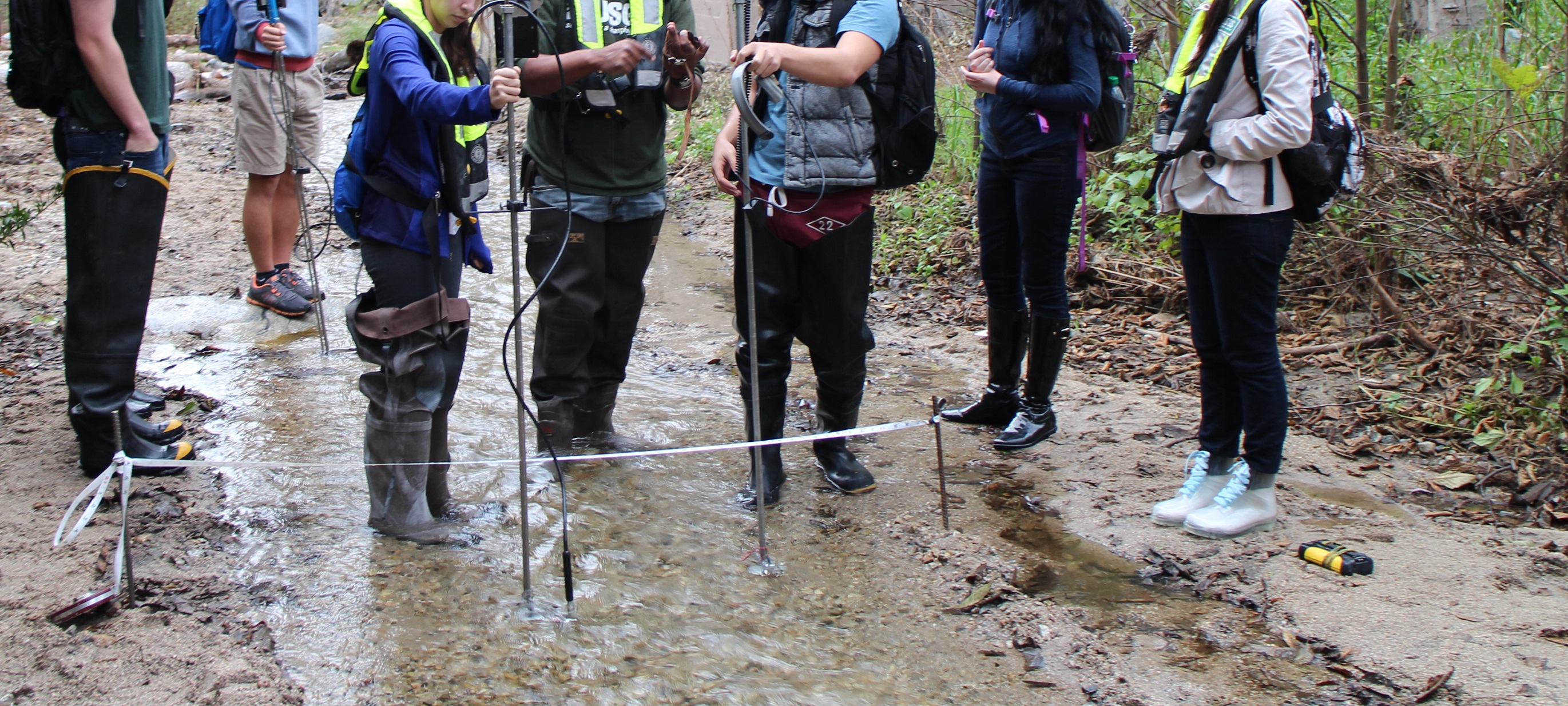
Courses
Undergraduate
150: Introduction to Hydrology (Fall)
Study of the hydrologic cycle and relevant atmospheric processes, water and energy balance, radiation, precipitation formation, infiltration, evaporation, vegetation transpiration, groundwater flow, storm runoff, and flood processes.
151: Introduction to Water Resources Engineering (Winter)
Principles of hydraulics, flow of water in open channels and pressure conduits, reservoirs and dams, hydraulic machinery, hydroelectric power. Introduction to system analysis and design applied to water resources engineering.
157L: Hydrologic Analysis and Design (Spring)
Collection, compilation, and interpretation of data for quantification of the components of the hydrologic cycle, including precipitation, evaporation, infiltration, and runoff. Use of hydrologic variables and parameters for development, construction, and application of analytical models for selected problems in hydrology and water resources.
Graduate
250A: Surface Water Hydrology (Fall)
In-depth study of surface water hydrology, including discussion and interrelationship of major topics such as rainfall and evaporation, soils and infiltration properties, runoff and snowmelt processes. Introduction to rainfall-runoff modeling, floods, and policy issues involved in water resource engineering and management.
250B: Groundwater Hydrology (Winter)
Theory of movement and occurrence of water in subterranean aquifers. Steady flow in confined and unconfined aquifers. Mechanics of wells; steady and unsteady radial flows in confined and unconfined aquifers. Theory of leaky aquifers. Parameter estimation. Seawater intrusion. Numerical methods. Applications.
250C: Hydrometeorology (Winter)
In-depth study of hydrometeorological processes. The role of hydrology in the climate system, precipitation and evaporation processes, atmospheric radiation, exchange of mass, heat, and momentum between the soil and vegetation surface and the overlying atmosphere, flux and transport in the turbulent boundary layer, basic remote sensing principles
250D: Water Resources Systems Engineering (Winter)
Application of mathematical programming techniques to water resource systems. Topics include reservoir management and operation, optimal timing, sequencing and sizing of water resources projects, and multiobjective planning and conjunctive use of surface water and groundwater. Emphasis is on the management of water quantity.
251A: Rainfall-Runoff Modeling (Spring alternating years)
Introduction to hydrologic modeling concepts, including rainfall-runoff analysis, input data, uncertainty analysis, lumped and distributed modeling, parameter estimation and sensitivity analysis, and the application of models for flood forecasting and prediction of streamflows in water resource applications.
251B: Land Surface Remote Sensing and Data Assimilation (Spring alternating years)
Introduction to the basic concepts of remote sensing, how these measurements are related to hydrologically relevant parameters like topography, soil moisture, snow properties, vegetation, precipitation, etc., and introduction to basic concepts of estimation theory (weighted least squares, maximum likelihood, Bayesian estimation, etc.) for the purposes of hydrologic data assimilation.
251C: Mathematical Modeling of Contaminant Transport in Groundwater (Spring)
Phenomena and mechanisms of hydrodynamic dispersion, governing equations of mass transport in porous media, various analytical and numerical solutions, determination of dispersion parameters by laboratory an field experiments, coupled multiphase pollution problems, computer programs and applications.
252: Economic Analysis of Water and Environmental Planning (Fall)
Economic theory and applications in analysis and management of water and environmental problems; application of price theory to water resource management and renewable resources; benefit-cost analysis with applications to water resources and environmental planning. Letter grading.
259B: Selected Topics in Water Resources
Review of recent research and developments in water resources. Water supply and hydrology, global climate change, economic planning, optimization of water resources development.
260: Advanced Topics in Hydrology and Water Resources (Spring)
Current research topics in inverse problem of parameter estimation, experimental design, conjunctive use of surface and groundwater, multiobjective water resources planning, and optimization of water resource systems. Topics may vary from term to term.
